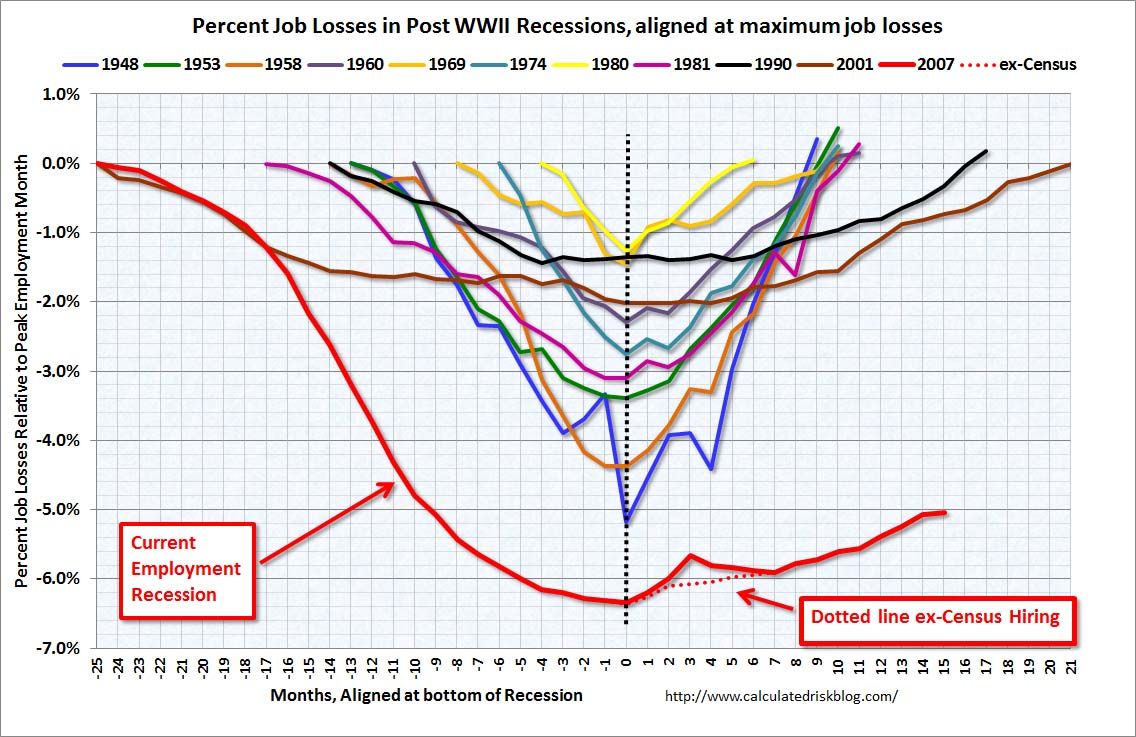Crossposted from The Stars Hollow Gazette
“I’m optimistic!”
That was the message from Hilda Solis, Secretary of Labor, in response to a jobs report that can only be described as appalling.
The Obama administration is in a complete disconnect from the Main Street economy and Ms. Solis looked pathetic and frantic as she denied reality on behalf of her employer. It’s really not a good sign when you let a CNBC reporter PWN you like this.
Unless Obama can change these numbers (or at least the stink of failure that permeates his record) he is doomed no matter what nut job the Thugs put up.

The Mistake of 2010
By PAUL KRUGMAN, The New York Times
Published: June 2, 2011
In fact, in important ways we have already repeated the mistake of 1937. Call it the mistake of 2010: a “pivot” away from jobs to other concerns, whose wrongheadedness has been highlighted by recent economic data.
…
Back when the original 2009 Obama stimulus was enacted, some of us warned that it was both too small and too short-lived. In particular, the effects of the stimulus would start fading out in 2010 – and given the fact that financial crises are usually followed by prolonged slumps, it was unlikely that the economy would have a vigorous self-sustaining recovery under way by then.By the beginning of 2010, it was already obvious that these concerns had been justified. Yet somehow an overwhelming consensus emerged among policy makers and pundits that nothing more should be done to create jobs, that, on the contrary, there should be a turn toward fiscal austerity.
…
(T)he news has, indeed, been bad. As the stimulus has faded out, so have hopes of strong economic recovery. Yes, there has been some job creation – but at a pace barely keeping up with population growth. The percentage of American adults with jobs, which plunged between 2007 and 2009, has barely budged since then. And the latest numbers suggest that even this modest, inadequate job growth is sputtering out.
…
(T)he mistake of 2010 may yet be followed by an even bigger mistake. Even if that doesn’t happen, however, the fact is that the policy response to the crisis was and remains vastly inadequate.
Somewhat corrected transcript below.
